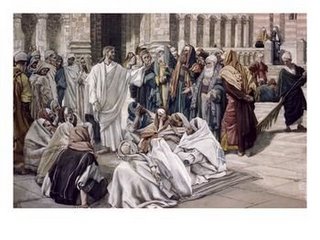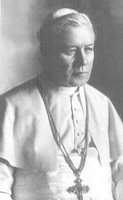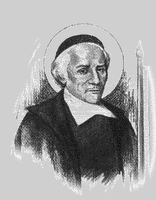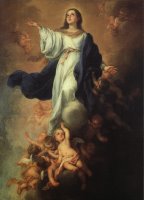
Thursday of the Twenty-first Week in Ordinary Time
Readings for Thursday of the 21st Week in Ordinary Time
Reflection:
My first thought upon reading the Gospel for today was about a joke I heard about a lawyer (it would also work for consultants). It seems this young lawyer died and went, of all places, to heaven. When he arrived he complained bitterly to St. Peter that he was too young to have been taken. He said there must have been some mistake. St. Peter looked in his book and then back at the lawyer and said; “But according to your billed hours, you are six hundred and forty two years old.”
It was just yesterday that we saw St. Paul dealing with a problem with the Thessalonians because some of them were convinced that the end was coming soon. Here today, in his first letter to the Corinthians, we see a hint of why that was a problem for them. Notice Paul’s language; “as you wait for the revelation of our Lord Jesus Christ. He will keep you firm to the end”. I would hear that and think; “Yikes, he is telling me that I will live to see the return of Jesus.” Is it any wonder some of the folks in Thessalonica thought the end was at hand?
Well, Jesus does make it clear in the Gospel of St. Matthew that it does not matter if we believe the end is coming sooner or later. What matters is that when it is our time to stand before our Lord and Savior in judgment, He will look at our lives and see that what we had discerned the Lord wanted of us, we were doing. And we would hear, “Blessed is that servant whom his master on his arrival finds doing so”
This is actually really good news for us. Over the past several months we have been hearing parables like the one about the land owner who went looking for day laborers and paid them all the same wage. We have seen examples in the Saints, most recently St. Augustine, who led less than exemplary lives and converted late in life. We may have been tempted to think; “Gee, I could be having a lot of fun right now if I gave into temptation.” We may have thought; “There would still be time. When I get old, I can convert and still enjoy the rewards of eternal life.”
Jesus is telling us something very important. He is basically telling us that St. Augustine and those who found faith later in life were really lucky. Lucky because we do not know the hour or the day that we will be called home to the Father. We might be tempted to rationalize; “But the Father is omnipotent and controls that moment. If He knows I am anxious to achieve those rewards guaranteed by the sacrifice of His only begotten Son…” Think about it. If we recognize that God has called to us; recognize that, for our salvation, he sent Jesus into the world, that though his sacrifice, that promise could be made to the faithful, how much wiggle room do we think we have with excuses? Purgatory (if we're really lucky) exists for a reason.
No, it’s very clear to us that we do not, will not; know the hour or the day when we will be called home to the Father. It is good news for us who listen to his call each day and each day are trying to do as the Lord asks. Granted, it is hard to be constantly striving to be what God has called us to be. Granted, we will always be examining what we have done and what we are doing and see that there is so far to go before we have achieved what Christ called us to do and to be. But, as the hymn says, “it’s the journey that makes us whole.” Pax






















